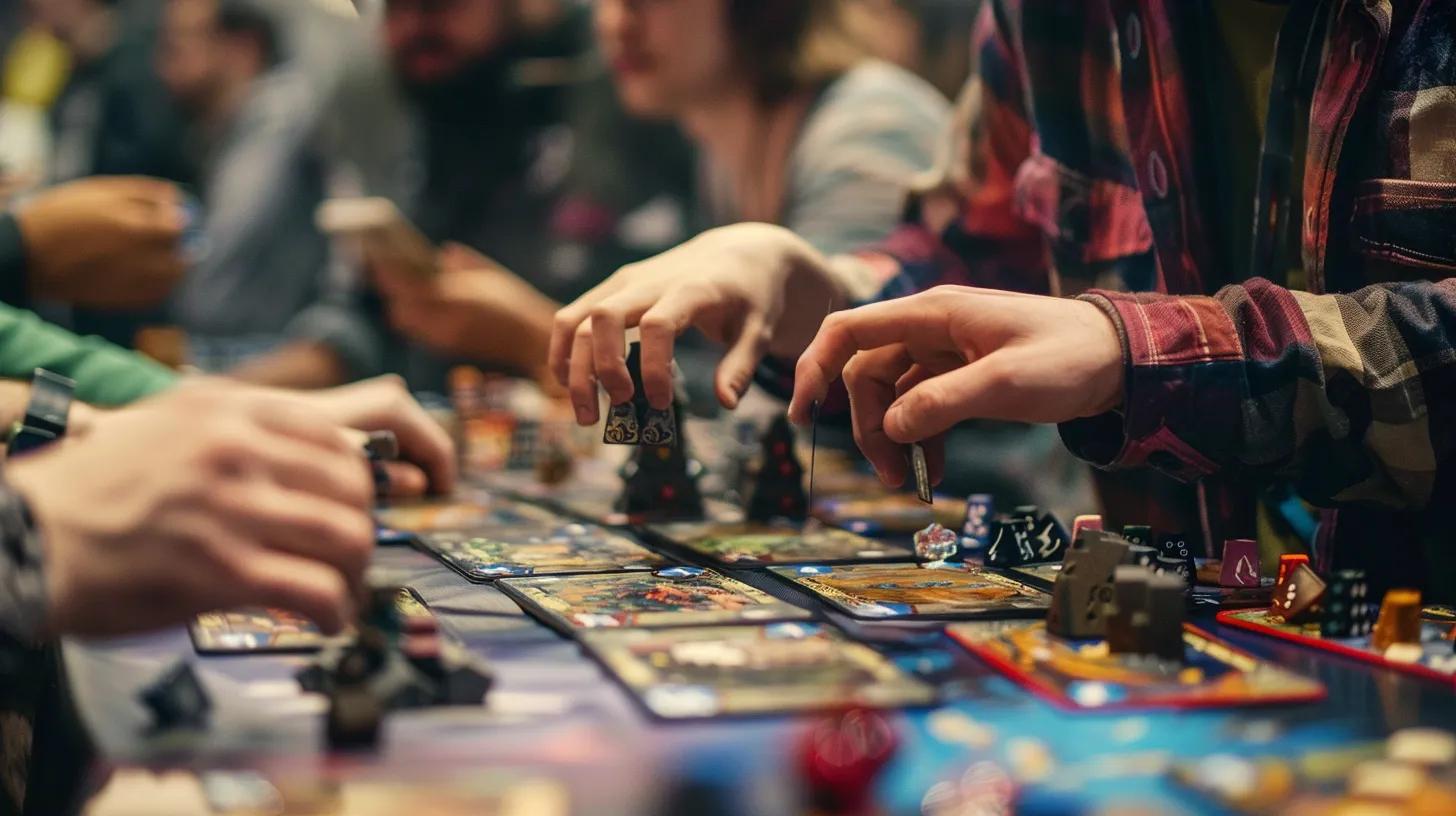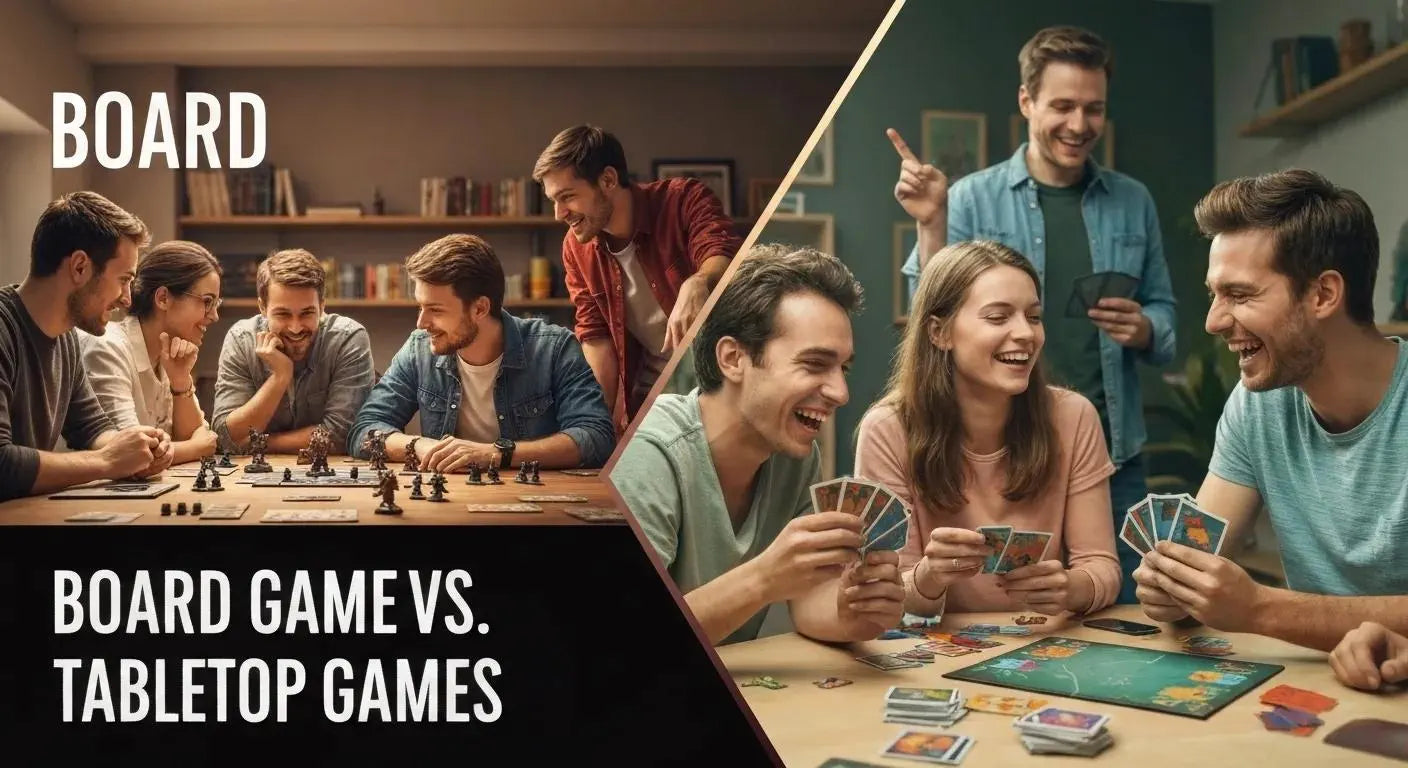
Why You Can't Resist the Charm of Tabletop Games
Tabletop games have been around for thousands of years, yet their appeal continues to grow, even in an age dominated by video games and streaming entertainment. Whether it’s a classic board game like Catan or a deep storytelling session in Dungeons & Dragons, tabletop games connect people in ways few other hobbies can.
Fabletop celebrates the art of in-person play, from fantasy dice sets to handcrafted leather journals, because tabletop gaming is more than just rolling dice; it’s storytelling, strategy, and shared imagination brought to life around the table.
Key Takeaway
People love tabletop games because they combine social connection, creativity, and critical thinking in a way digital games can’t.
From strategic board games like Catan and Ticket to Ride to cooperative adventures like Pandemic or imaginative RPGs, tabletop games bring friends and families together through storytelling, problem-solving, and shared imagination.
They’re more than just games; they’re experiences that help players connect, think deeply, and express creativity both on and off the table.
Why Tabletop Games Bring People Together

One of the primary reasons people enjoy tabletop games is the social connection they provide. Unlike solo video games, tabletop games require face-to-face interaction, laughter, debate, and even a bit of friendly competition.
Players collaborate in cooperative games like Pandemic or test their wits against each other in strategic classics like Ticket to Ride. This shared experience builds real-world relationships and strengthens bonds among friends and family.
Build your own game night with our tabletop accessories, from dice towers to dice storage solutions.
Tabletop Games Sharpen Problem-Solving and Critical Thinking Skills
Tabletop games are a playground for the mind. From balancing trade in Catan to containing outbreaks in Pandemic, players constantly engage in critical thinking, strategic planning, and problem-solving.
Here’s what makes these games mentally engaging:
- Strategic depth: Games like Ticket to Ride reward foresight and planning.
- Decision-making pressure: You must adapt to unpredictable moves from others.
- Cooperative teamwork: In games like Pandemic, victory depends on everyone’s contribution.
Unlike many video games, which automate thinking for you, tabletop experiences require players to actively engage their creativity and logic, a skill set that translates beyond the table.
Imagination Takes Center Stage in Tabletop Play

Every tabletop game is an invitation to create a story together. Whether you’re commanding armies in Risk or weaving a heroic tale in a fantasy RPG, tabletop games give players the freedom to invent and explore.
For role-players, imagination is the currency of the game. The roll of a dice doesn’t just decide outcomes, it fuels the narrative. When paired with tools like handcrafted journals, players get lost in worlds shaped by creativity and storytelling.
Record your strategies, notes, and campaign outcomes in our fantasy journal collection, a handcrafted collection for Dungeon Masters and creative thinkers.
Why Tabletop Games Still Compete with Video Games
Despite the digital revolution, tabletop gaming is thriving. The reason? Human interaction and tactile immersion. Unlike digital screens, tabletop experiences offer physical pieces that feel like cards, the weight of metal dice, and the shared anticipation as the dice tumble.
Modern players often seek a balance between technology and connection. Tabletop games provide a slower, more mindful form of play that sparks creativity, laughter, and conversation.
The Creative & Emotional Benefits of Tabletop Games

Tabletop gaming also serves as a creative outlet and emotional reset. It allows players to express different sides of themselves: the tactician, the storyteller, the hero.
Players often report:
- A boost in creativity through roleplay and improvisation.
- Reduced stress from collaborative gameplay.
- Improved empathy from taking on diverse character roles.
Games like Catan and Pandemic teach lessons in compromise, patience, and resilience just as valuable off the table.
Express yourself and unwind at the table with our dice collection. Every roll is a chance to explore creativity and connection.
The Reason We Keep Playing
So, why do people like tabletop games? Because they remind us what it means to connect with others, with stories, and with ourselves.
Whether you’re building empires, saving the world, or charting your next adventure in a hand-bound leather journal, tabletop games invite us to slow down, imagine more, and play with purpose.
Frequently Asked Questions
Do tabletop games appeal to people of all ages?
Yes, tabletop games appeal to nearly every age group. Kids often enjoy colorful, quick-to-learn games, while adults and teens are drawn to more complex strategy or storytelling games. Older adults appreciate how games encourage social time, laughter, and mental activity. Because there’s such a wide range of styles and difficulty levels, it’s easy to find a game that suits any age or personality.
Are tabletop games accessible to all age groups?
Yes, though accessibility depends on the game and context. Simple games with short playtimes are great for beginners or younger players, while more complex games may require more time, focus, or prior experience. Physical and cognitive accessibility can be improved by choosing games with larger pieces, clear text, or simplified rules. Community access also plays a role, as many libraries and urban community centers host tabletop game nights or lending programs that allow people to try games without buying their own collection. However, availability varies by location and size, and not all libraries offer these options.
What kinds of tabletop games are there?
There are many kinds of tabletop games, each offering a unique experience. Board games often focus on strategy or adventure, with popular examples like Catan and Ticket to Ride. Card games range from lighthearted options like Uno to competitive classics such as Magic: The Gathering. Dice games bring fast-paced, luck-driven fun through titles like Yahtzee or King of Tokyo. Role-playing games (RPGs), including Dungeons & Dragons, invite players into story-driven adventures where imagination leads the way. Miniature and wargames emphasize tactical combat using detailed figures and terrain setups. Party and social games encourage laughter and interaction, with favorites like Codenames and Werewolf. Finally, dexterity games test players’ physical skills through balance and precision, as seen in Jenga and Klask.



